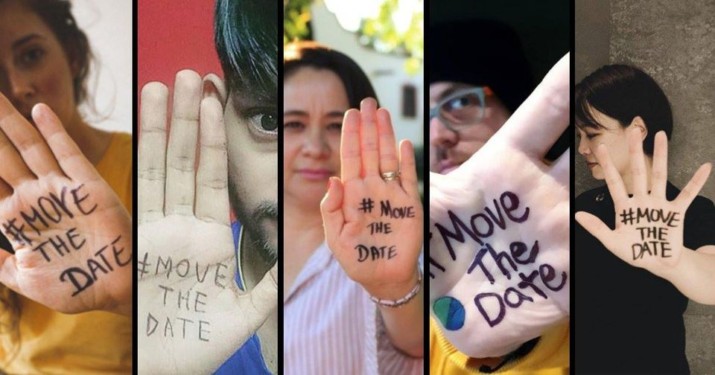Oakland, CA. More than fourteen different international organizations have agreed with the Global Footprint Network on bringing more awareness about Earth Overshoot Day (EOD). EOD is essentially a day calculated by the Global Footprint Network where humans’ usage and consumption of Earth’s natural resources exceeds or overshoots the amount the planet is actually able to produce.
The EOD is calculated by dividing the number of natural resources the Earth generates each year or biocapacity, by the human consumption of Earth’s natural resources that year or the world’s ecological footprint.
Generally speaking, the earlier the date is in the year, the quicker it was for humans to consume more resources than the Earth can produce.
The concept was originally developed by New Economics Foundation (NEF) Policy Director Andrew Simms in the 1980s. NEF’s global partner Global Footprint Network has subsequently hosted a campaign every year since 1987 for EOD to bring more awareness of humans’ over-usage of Earth’s resources.
Since the late ’80s, the EOD has changed from the middle of Autumn to the late summer in 2019.
2020 was an interesting year for the world as the global pandemic had seen a decrease in general human activity and usage of certain energy sources.
Researchers found in 2020 that the global ecological footprint decreased by 9.3% compared to 2019.
The EOD each year generally shrinks back to earlier in the year as human activity and consumption of natural resources gradually increases. However, the 2020 EOD took place 24 days later than the 2019 EOD.
Some solutions the Global Footprint Network has put forth for this year include nurturing nature’s biodiversity in your local area, transferring to renewable energies, and transforming our systems when it comes to producing food and running our cities.
“All the while we cannot afford to wait before we take action, one city, one country, one company, one entity, one individual at a time…ultimately, a constellation of life-sustaining actions is what is needed in order to #MoveTheDate of Earth Overshoot Day intentionally and by design,” said Global Footprint Network.
From Global Footprint Network:
Everyone should be able to look forward to a bright future where we all thrive within the means of our one planet. However, our economies are currently running a fraudulent Ponzi (or pyramid) scheme with our planet. We are consuming natural resources faster than they can regenerate; we are using the Earth’s future resources to operate in the present; we are digging ourselves deeper and deeper into ecological debt.
Prosperity can only last if we embrace the limits of our planet. Accepting limits allows us to build an economy that works forever. Ignoring limits leads to a finite, time-limited economy which steadily since it erodes the planet it depends on.
A path to success – or to one-planet prosperity – requires robust metrics that relate our global context to local decisions. Measure what you treasure: To build a world where all can thrive, we need to know how much nature we have and how much we use.





